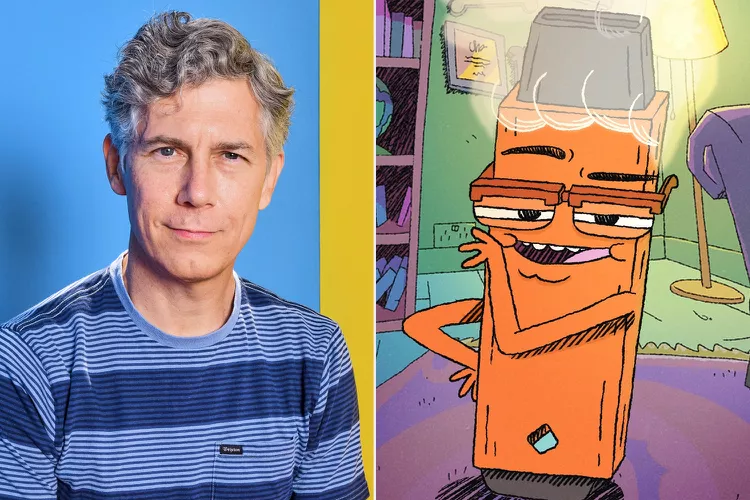Vaping, the act of using electronic cigarettes to consume nicotine instead of traditional tobacco, has long been associated with a slew of physical health risks, including lung illnesses and cardiovascular problems. However, a lesser-known and equally concerning facet of this trend is its impact on mental health, especially among teenagers. This issue has been brought to the forefront by Truth Initiative’s recent campaign, “Toxic Therapy,” featuring the voice of actor Chris Parnell as a duplicitous vape character posing as a therapist for adolescents.
In an exclusive interview with PEOPLE, Chris Parnell described this vape character as one who manipulates rather than genuinely helping teens in their sessions. While outwardly resembling a real therapist, this character harbors an agenda, employing craftiness and deception, and concealing a darker, nastier side behind a friendly facade.
Parnell, a former cast member of Saturday Night Live and star of Rick and Morty, emphasized that teenagers often turn to vaping as a coping mechanism for stress and anxiety, believing it will alleviate their woes. However, scientific evidence tells a different story: vaping exacerbates stress, anxiety, and sleep disturbances, rather than providing relief.
The key culprit behind this negative impact on mental health is nicotine addiction. The Centers for Disease Control and Prevention (CDC) highlights that nicotine withdrawal symptoms include irritability, restlessness, anxiety, depression, sleep problems, difficulty concentrating, and cravings for nicotine. These symptoms often lead individuals to continue using tobacco products to seek relief.
Furthermore, nicotine consumption during adolescence can hinder the development of critical brain regions responsible for attention, learning, mood regulation, and impulse control. On a more positive note, the CDC points out that quitting smoking cigarettes is associated with reduced levels of anxiety, depression, and stress, as well as improved overall mood and quality of life.
Karely Alcantara, a 21-year-old Truth Ambassador, shared her personal journey of vaping and its impact on her mental well-being. She revealed that she initially turned to e-cigarettes as a means to cope with anxiety and depression, finding solace in the temporary buzz nicotine provided. However, this coping mechanism ultimately kept her from seeking the professional help she needed, leaving her feeling worse than before.
Parnell, drawing from his own experiences, stressed the importance of finding healthier ways to cope with stress, such as his reliance on theater and talk therapy during his teenage years.
Additionally, Truth Initiative provides valuable resources for teenagers struggling with vaping and its effects on mental health. The organization offers a texting crisis line (reachable by texting HOME to 741741) to connect young individuals with trained crisis counselors who can offer support and guidance.
Moreover, Truth Initiative offers a text-based program called “This is Quitting” (accessible by texting DITCHVAPE to 88709) designed to help teenagers quit vaping. Karely Alcantara attributed her successful journey to quitting vaping to this program, highlighting its effectiveness in her journey to overcome the addiction.
In conclusion, the “Toxic Therapy” campaign sheds light on the often-overlooked dangers of vaping on mental health. It underscores the importance of mental well-being among teenagers and provides valuable resources to support those looking to break free from the grip of vaping. As this campaign continues to raise awareness, it is hoped that teenagers will realize that vaping is not a genuine coping mechanism, but a harmful habit that exacerbates their challenges. By addressing this issue head-on, we can ensure a healthier and brighter future for the next generation.




